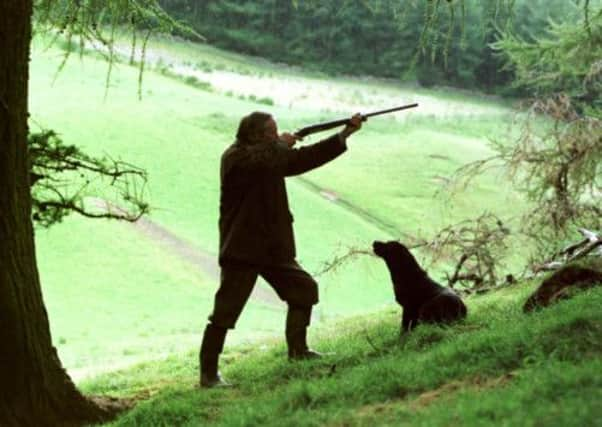‘Snobbery with violence’ is no rural sport


AS a semi-retired writer living in Kirkbymoorside, which, as the name might suggest lies on the edge of the North York Moors, I have a daily circular walk. Habit now takes me up the main street of the town then up the rising road of Castlegate and, taking the right fork where the houses peter out, I am amongst fields, views of distant moors and heading for the wooded rim of Douthwaite dale.
Over the cattle grid near Low Park Farm, the road turns agricultural, rutted, muddy most of last year, now frozen hard with large puddles lidded by ice. From here to the point where I turn back the woods are on my right, and usually populated by pheasants as tame as farmyard poultry. In these early January days however there are few birds to be seen – dispersed by days of continuous shooting.
Advertisement
Hide AdAdvertisement
Hide AdI walk from long habit, from walking to school as a child in similar country, to more rigorous “walking” in Army service, and for years to get away from my desk. A couple of years ago I met my doctor and his wife on this walk and as I approached he regarded me, grinning, and said: “We’ll never get rid of you, James”.
I said: “What on earth do you mean?” (On reflection I wish I’d said: “What’s up Doc?” Or something witty, but it’s often the case.) He said: “I’ve been reading a huge survey done in China and they’ve found that, give or take a few years, the length a person walks tallies with the length of their life. Since I gather you walk every day...”
“Great,” I said, “I’ll live a thousand years.”
The truth is that I don’t walk with the idea of prolonging my life and with only vague notions of keeping healthy. I do find myself in a better frame of mind after my morning walk and if it’s become an addiction it’s a gentle and positive one. Sometimes, however, there are depressing interruptions.
For several mornings now I have been overtaken by the same convoy of 4x4s, about six of them, rocking in the frozen ruts, reckless of pools and pedestrians, each interior a jumble of florid faces and expensive tweed. The shooters are a familiar sight. I know it’s £1,000 a day to shoot in what remains of Ravenswick Estate, a claret and game pie lunch, a token brace to take away (and the rest buried in a mass grave) and, no doubt an impressive line or two for dinner party chat: “Actually I’ve been shooting in North Yorkshire. Bloody atrocious weather but terrific sport.”
Advertisement
Hide AdAdvertisement
Hide AdFarther along the rim of Douthwaite, in a ragged line reeking breath and white tobacco smoke, the local beaters await the next drive into eerily quiet woods. I know most them, and stop for a chat. They say the bird stock is depleted now, shot to bits. Even the hardest of them are beginning to say: “It’s bloody cruelty.” The birds are tame and trusting at the start of the season. Used to being fed, they soon have to be beaten by sticks and shouts into the perilous sky. Old Wildsmith (a local character and veteran beater) says: “Up Farndale last week they brought the shooters in by helicopter: Canadians. Some on ’em couldn’t hit a dead cow wi’ a shovel.” The beaters (£30 a day and bring your own “bate”) laugh as I walk on. I find I have the countryman’s ambivalence about this activity. I find it far more cruel than hunting. I know that the English countryside I love would not exist in its present form if it were not for centuries of country sports. But these shooters are not toffs, or landowners or farmers enjoying their annual rough shoots – these are businessmen from all over the globe and this is, to my mind, a demonstration of “snobbery with violence” with the impressing of clients, and the clinching of deals the driving force.
It doesn’t fit any category of sporting behaviour I can think of, and its depredations to the environment and associated wildlife are no doubt well known: the toll of wild birds that die from partaking of the antibiotic-laced food of the pheasants for instance.
With the snowy rooftops of Gillamoor in view, I see some pheasants at last; in a glittering clearing amongst the firs, a baffled group, asking the same disconsolate question over and over like a people, displaced, exhausted by flight, and pleading for compassion.